158 start with P start with P
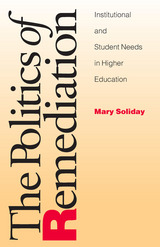
While some students need more writing instruction than others, The Politics of Remediation reveals how that need also pertains to the institutions themselves. Mary Soliday argues that universities may need remedial English to alleviate their own crises in admissions standards, enrollment, mission, and curriculum, and English departments may use remedial programs to mediate their crises in enrollment, electives, and relationships to the liberal arts and professional schools.
Following a brief history of remedial English and the political uses of remediation at CCNY before, during, and after the open admissions policy, Soliday questions the ways in which students’ need for remedial writing instruction has become widely associated with the need to acculturate minorities to the university. In disentangling identity politics from remediation, she challenges a powerful assumption of post-structuralist work: that a politics of language use is equivalent to the politics of access to institutions.

The Politics of Sexuality in Latin America presents the first English-language reader on LGBT politics in Latin America. Representing a range of contemporary works by scholars, activists, analysts, and politicians, the chapters address LGBT issues in nations from Cuba to Argentina. In their many findings, two main themes emerge: the struggle for LGBT rights has made significant inroads in the first decade of the twenty-first century (though not in every domain or every region); and the advances made were slow in coming compared to other social movements.
The articles uncover the many obstacles that LGBT activists face in establishing new laws and breaking down societal barriers. They identify perhaps the greatest roadblock in Latin American culture as an omnipresent system of “heteronormativity,” wherein heterosexuality, patriarchalism, gender hierarchies, and economic structures are deeply rooted in nearly every level of society. Along these lines, the texts explore specific impediments including family dependence, lack of public spaces, job opportunities, religious dictums, personal security, the complicated relationship between leftist political parties and LGBT movements in the region, and the ever-present “closets,” which keep LGBT issues out of the public eye.
The volume also looks to the future of LGBT activism in Latin America in areas such as globalization, changing demographics, the role of NGOs, and the rise of economic levels and education across societies, which may aid in a greater awareness of LGBT politics and issues. As the editors posit, to be democratic in the truest sense of the word, nations must recognize and address all segments of their populations.
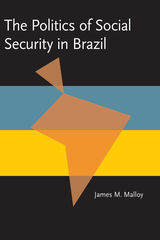

Jeffrey E. Cohen presents a detailed, quantitative study of the characteristics of presidential cabinets from the days of George Washington through the first Reagan administration. Dividing U.S. history into five party eras, he examines cabinet members' age, education, region, occupation, recruitment patterns, party affiliations, and relations with other branches and institutions of government. This study also addresses major theoretical issues: the Constitution never provided for a cabinet, although George Washington established it. Questions soon arose as to its functions, relation to Congress, and the rules and precedents guiding its activities. Cohen examines how the cabinet balanced representation and capability, and how, despite a lack of institutional authority, it has managed to survive through every administration.
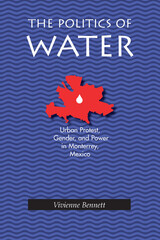
Monterrey is Mexico’s second most important industrial city, emerging in this era of free trade as a cornerstone of Mexico’s economic development. But development has been uneven and has taken a toll: As recently as the early 1980s, nearly a quarter of the city’s almost three million inhabitants did not have running water in their homes. At the same time, heavy industry - especially steel, iron, chemical, and paper works - were major users of water in their production processes.
Extensive industrialization coupled with a lack of infrastructure development astonishing in a major industrial city raises serious questions about the process of planning urban services in Mexico. Bennett uses the water crisis of the 1980s as a lens through which to reveal this planning process and the provision of public services in Monterrey. She finds three groups who were central to the evolution of the city’s water system: federal and state government leaders, the regional private sector elite (the Grupo Monterrey), and women living in the low-income neighborhoods of the city.
Bennett unravels the politics of water in Monterrey by following three threads of inquiry. First, she examines the water services themselves - what was built, when, why, and who paid for them. She then reveals the response of poor women to the water crisis, analyzing who participated in protests, the strategies they used, and how the government responded. And, finally, she considers the dynamics of planning water services for the private sector and the government in investment and management. In the end, Monterrey’s water services improved because power relations shifted and because poor women in Monterrey used protests to make national news out of the city’s water crisis.
The Politics of Water makes a significant contribution to the emerging scholarship on regional politics in Mexico and to a deeper understanding of the Monterrey region in particular. Until recently, most scholarly writing on Mexico spoke of the national political system as a monolithic whole. Scholars such as Vivienne Bennett are now recognizing the power of local citizens and the significant differences among regions when it comes to politics, policy making, and governmental investment decisions.
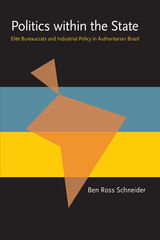
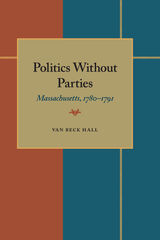

During Soviet rule, the state all but imposed atheism on the primarily Islamic people of Kyrgyzstan and limited the tradition of polygyny—a form of polygamy in which one man has multiple wives. Polygyny did continue under communism, though chiefly under concealment. In the decades since the fall of the Soviet Union, the practice has reemerged. Based on extensive fieldwork, Polygynous Marriages among the Kyrgyz argues that this marriage practice has become socially acceptable and widely dispersed not only because it is rooted in customary law and Islamic practice, but because it can also enable men and women to meet societal expectations and solve practical economic problems that resulted from the fall of the Soviet Union. Michele E. Commercio’s analysis suggests the normalization of polygyny among the Kyrgyz in contemporary Kyrgyzstan is due both to institutional change in the form of altered governmental rules and expectations and to institutional endurance in the form of persistent hegemonic constructions of gender.
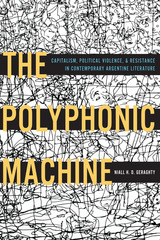

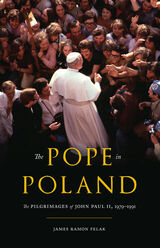
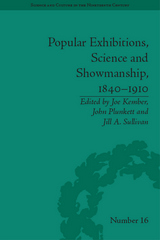
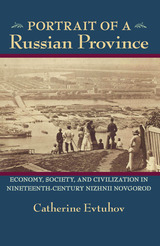
Several stark premises have long prevailed in our approach to Russian history. It was commonly assumed that Russia had always labored under a highly centralized and autocratic imperial state. The responsibility for this lamentable state of affairs was ultimately assigned to the profoundly agrarian character of Russian society. The countryside, home to the overwhelming majority of the nation’s population, was considered a harsh world of cruel landowners and ignorant peasants, and a strong hand was required for such a crude society.
A number of significant conclusions flowed from this understanding. Deep and abiding social divisions obstructed the evolution of modernity, as experienced “naturally” in other parts of Europe, so there was no Renaissance or Reformation; merely a derivative Enlightenment; and only a distorted capitalism. And since only despotism could contain these volatile social forces, it followed that the 1917 Revolution was an inevitable explosion resulting from these intolerable contradictions—and so too were the blood-soaked realities of the Soviet regime that came after. In short, the sheer immensity of its provincial backwardness could explain almost everything negative about the course of Russian history.
This book undermines these preconceptions. Through her close study of the province of Nizhnii Novgorod in the nineteenth century, Catherine Evtuhov demonstrates how nearly everything we thought we knew about the dynamics of Russian
society was wrong. Instead of peasants ground down by poverty and ignorance, we find skilled farmers, talented artisans and craftsmen, and enterprising tradespeople. Instead of an exclusively centrally administered state, we discover effective and participatory local government. Instead of pervasive ignorance, we are shown a lively cultural scene and an active middle class. Instead of a defining Russian exceptionalism, we find a world recognizable to any historian of nineteenth-century Europe.
Drawing on a wide range of Russian social, environmental, economic, cultural, and intellectual history, and synthesizing it with deep archival research of the Nizhnii Novgorod province, Evtuhov overturns a simplistic view of the Russian past. Rooted in, but going well beyond, provincial affairs, her book challenges us with an entirely new perspective on Russia’s historical trajectory.

Photography offered an inexpensive and readily available technology for producing portraits and other images that allowed lower- and middle-class racialized subjects to create their own distinct rhetoric and vision of their culture. The powerful identity-marking vehicle that photography provided to the masses has been overlooked in much of Latin American cultural studies—which have focused primarily on the elite’s visual arts. Coronado's study offers close readings of Andean photographic archives from the early- to mid-twentieth century, to show the development of a consumer culture and the agency of marginalized groups in creating a visual document of their personal interpretations of modernity.
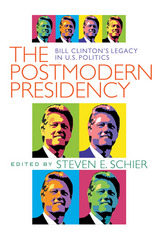
As America’s first truly postmodern president, Bill Clinton experienced both great highs and stunning lows in office that will shape the future course of American politics. Clinton will forever be remembered as the first elected president to be impeached, but will his tarnished legacy have lasting effects on America’s political system?
Including the conflict in Kosovo, the World Trade Organization meeting in Seattle, and new developments in the 2000 presidential campaign, The Postmodern Presidency is the most comprehensive and current assessment of Bill Clinton’s presidency available in print.
The book examines Clinton’s role in redefining the institution of the presidency, and his affect on future presidents’ economic and foreign policies. The contributors highlight the president’s unprecedented courtship of public opinion; how polls affected policy; how the president gained “celebrity” status; how Clinton’s “postmodern” style of public presidency helped him survive the 1994 elections and impeachment; and how all of this might impact future presidents.
This new text also demonstrates how the Clinton presidency changed party politics in the public and in Congress, with long-term implications and costs to both Republicans and his own Democratic party, while analyzing Clinton’s effect on the 1990s “culture wars,” the politics and importance of gender, and the politics and policy of race.

“Megabills” that package scores of legislative proposals into House and Senate bills are a phenomenon of the congressional reforms of the 1970s and the agenda changes of the 1980s. These bills generate unprecedented disagreements between the House and Senate, requiring congressional leaders, the president, committee chairs, and junior members to play new roles in this struggle for resolution.
Conference committees of hundreds of members, informal negotiations among party leaders, and preconference strategizing and behavior are among the new realities of bicameralism that are viewed in this study. These conferences are vital because they generally are the last arenas in which large-scale changes can be made in legislation.
Van Beek uses a case study approach that investigates the legislative histories of recent bills on the savings and loan bailout, the major trade bill of the late 1980s, and several budget reconciliation bills. His research is brought to life through personal experience as a legislative aide, direct observation of Congress at work, and interviews with members, staff and lobbyists.

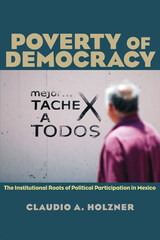
Political participation rates have declined steadily in Mexico since the 1990s. The decline has been most severe among the poor, producing a stratified pattern that more and more mirrors Mexico’s severe socioeconomic inequalities. Poverty of Democracy examines the political marginalization of Mexico’s poor despite their key role in the struggle for democracy.
Claudio A. Holzner uses case study evidence drawn from eight years of fieldwork in Oaxaca, and from national surveys to show how the institutionalization of a free-market democracy created a political system that discourages the political participation of Mexico’s poor by limiting their access to politicians at the local and national level. Though clean elections bolster political activity, Holzner shows that at the local level, and particularly in Mexico’s poorest regions, deeply rooted enclaves of authoritarianism and clientelism still constrict people’s political opportunities.
To explain this phenomenon, Holzner develops an institutional theory in which party systems, state-society linkages, and public policies are the key determinants of citizen political activity. These institutions shape patterns of political participation by conferring and distributing resources, motivating or discouraging an interest in politics, and by affecting the incentives citizens from different income groups have for targeting the state with political activity.
Holzner’s study sheds light on a disturbing trend in Latin America (and globally), in which neoliberal systems exacerbate political and economic disparities and create institutions that translate economic inequalities into political ones.

Robert D. Lifset offers an original case history of this monumental event in environmental history, when a small group of concerned local residents initiated a landmark case of ecology versus energy production. He follows the progress of this struggle, as Con Ed won approvals and permits early on, but later lost ground to environmentalists who were able to raise questions about the potential damage to the habitat of Hudson River striped bass.
Lifset uses the struggle over Storm King to examine how environmentalism changed during the 1960s and 1970s. He also views the financial challenges and increasingly frequent blackouts faced by Con Ed, along with the pressure to produce ever-larger quantities of energy.
As Lifset demonstrates, the environmental cause was greatly empowered by the fact that through this struggle, for the first time, environmentalists were able to gain access to the federal courts. The environmental cause was also greatly advanced by adopting scientific evidence of ecological change, combined with mounting public awareness of the environmental consequences of energy production and consumption. These became major factors supporting the case against Con Ed, spawning a range of new local, regional, and national environmental organizations and bequeathing to the Hudson River Valley a vigilant and intense environmental awareness. A new balance of power emerged, and energy companies would now be held to higher standards that protected the environment.
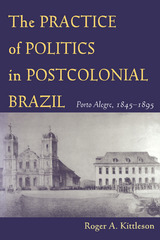
The Practice of Politics in Postcolonial Brazil traces the history of high and low politics in nineteenth-century Brazil from the vantage point of the provincial capital of Porto Alegre. In the immediate postcolonial period, new ideas about citizenship and freedom were developing, and elites struggled for control of the state as the lower classes sought inclusion in political life. In a shift from the Liberal Party to Positivist or Conservative rule during the bloody Federalist Revolt of 1893–1895, new leaders sought to bring about a more balanced structure of government where the capitalist was sympathetic to the worker, and the worker more passive toward the elite. This represented a complete change of opinions—a new regime of ideas. Termed a “scientific” approach by its proponents, the movement was based on historical process and would be brought about through civic education.
Against the backdrop of the abolition of slavery and subsequent assimilation, the rise of European immigration, and industrialization, Kittleson investigates how “the people” shaped changing political ideologies and practices, and how through local struggles and changes in elite ideology, the lower classes in Porto Alegre won limited political inclusion that was denied elsewhere.
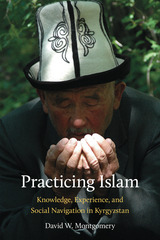
Through his years of on-the-ground research, Montgomery assembles both an anthropology of knowledge and an anthropology of Islam, demonstrating how individuals make sense of and draw meanings from their environments. He reveals subtle individual interpretations of the religion and how people seek to define themselves and their lives as “good” within their communities and under Islam.
Based on numerous in-depth interviews, bolstered by extensive survey and data collection, Montgomery offers the most thorough English-language study to date of Islam in post-Soviet Kyrgyzstan. His work provides a broad view into the cognitive processes of Central Asian populations that will serve students, researchers, and policymakers alike.

Practicing Writing examines a pivotal era in the history of the most ubiquitous-and possibly most problematic-course in North American colleges and universities: the requireAd first-year writing course generally known as “freshman English.”
Thomas Masters's focus is the mid-twentieth century, beginning with the returning waves of World War II veterans attending college on the GI Bill. He then traces the education reforms that took place in the late 1950s after the launch of Sputnik and the establishment of composition as a separate discipline in 1963. This study draws upon archives at three midwestern schools that reflect a range of higher education options: Wheaton, a small, sectarian liberal arts college; Northwestern, a large private university; and Illinois, a large public university.
Practicing Writing gives voice to those whose work is often taken for granted or forgotten in other studies of the subject: freshman English students and their instructors. Masters examines students' papers, professors' letters, and course descriptions, and draws upon interviews conducted with teachers to present the practitioners' points of view.
Unlike other studies of the subject, which have tended to focus more on the philosophy, theory, and ideology of teaching composition and rhetoric, Masters reveals freshman English to be a practice-based phenomenon with a durable ideological apparatus. By reexamining texts that had previously been considered insignificant, he reveals the substance of first-year composition courses and the reasons for their durability.

The Czechs struggled to define their national identity throughout the modern era. Prague, the capital of a diverse area comprising Czechs, Slovaks, Germans, Poles, Ruthenians, and Romany as well as various religious groups including Catholics, Protestants, and Jews, became central to the Czech domination of the region and its identity. These struggles have often played out in violent acts, such as the destruction of religious monuments, or the forced segregation and near extermination of Jews.
During the twentieth century, Prague grew increasingly secular, yet leaders continued to look to religious figures such as Jan Hus and Saint Wenceslas as symbols of Czech heritage. Hus, in particular, became a paladin in the struggle for Czech independence from the Habsburg Empire and Austrian Catholicism.
Through her extensive archival research and personal fieldwork, Cynthia Paces offers a panoramic view of Prague as the cradle of Czech national identity, seen through a vast array of memory sites and objects. From the Gothic Saint Vitus Cathedral, to the Communist Party's reconstruction of Jan Hus's Bethlehem Chapel, to the 1969 self-immolation of student Jan Palach in protest of Soviet occupation, to the Hosková plaque commemorating the deportation of Jews from Josefov during the Holocaust, Paces reveals the iconography intrinsic to forming a collective memory and the meaning of being a Czech. As her study discerns, that meaning has yet to be clearly defined, and the search for identity continues today.

As an essential resource, water has been the object of warfare, political wrangling, and individual and corporate abuse. It has also become an object of commodification, with multinational corporations vying for water supply contracts in many countries. In Precious Commodity, Martin V. Melosi examines water resources in the United States and addresses whether access to water is an inalienable right of citizens, and if government is responsible for its distribution as a public good.
Melosi provides historical background on the construction, administration, and adaptability of water supply and wastewater systems in urban America. He cites budgetary constraints and the deterioration of existing water infrastructures as factors leading many municipalities to seriously consider the privatization of their water supply. Melosi also views the role of government in the management of, development of, and legal jurisdiction over America’s rivers and waterways for hydroelectric power, flood control, irrigation, and transportation access. Looking to the future, he compares the costs and benefits of public versus private water supply, examining the global movement toward privatization.

WINNER OF THE 2010 AGNES LYNCH STARRETT POETRY PRIZE
“Glenn Shaheen is claiming new ground for American poetry. His poems are about the nightmares of information overload, collapsing infrastructure, ubiquitous violence, and other ills of late empire. The subjects are not happy, but Shaheen's clear vision and crisp—often witty—language offer the pleasures of surprise, discovery, and recognition.”
—Ed Ochester

Finalist, 2023 Lammy Award in Lesbian Poetry
Prelude delineates the gay female experience through a poetic reconstruction of the girlhood of Catherine of Siena, a Catholic saint who lived in 1300s Italy and disobeyed her parents by refusing marriage to devote her life to God. Through a historical lens, Brynne Rebele-Henry examines the erasure of gay women’s lives and offers a perspective of medieval queer girlhood while considering themes such as violence, desire, and the lesbian body.
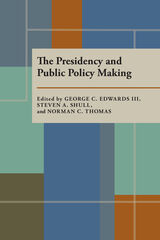
The premise behind this book is that policy making provides a useful perspective for studying the presidency, perhaps the most important and least understood policy-making institution in the United States. The eleven essays focus on diverse aspects of presidential policy making, providing insights on the presidency and its relationship to other policy-making actors and institutions. Major topics addressed include the environment of presidential policy making and the constraints it places on the chief executive; relationships with those outside the executive branch that are central to presidential policy making; attempts to lead the public and Congress; presidential decision making; and administration or implementation of policies in the executive branch, a topic that has received limited attention in the literature on the presidency.

Administration in time of war has come to revolve around the President, and much of the administrative authority of the President is then delegated to extralegal agents. Grundstein's analysis of the experiences of World War I show that such delegation is inevitable: From the beginning of the war Congress delegated many powers to the Chief Executive, who, of necessity, named others to act for him in the prosecution of the war. Furthermore, Congress granted these administrative powers without formally establishing new administrative agencies with attendant Congressional oversight. Though constitutionally the President's powers are exclusively executive as distinguished from administrative, beginning with WWI, and increasing during WWII, the President has become in effect the administrator-in-chief.
Nathan Grundstein traces the evolution of a new body of administrative law delineating the unique patterns of wartime organization and administration that emerged during the twentieth century.

Judith Michaels provides an in-depth examination of the Senate-confirmed presidential appointees of the Gorge H. W. Bush administration, and analyzes what these choices reveal about him, his administration, and the institution of political appointments itself. She compares this research to other administrations in the modern era. Particularly fascinating is how Bush's appointees compare with those of Ronald Reagan.

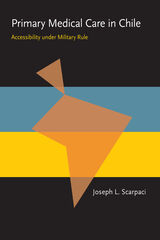

Smith's poetry explores that inexplicable tension between what we say and how we actually feel, exposing the complications of intimacy and the limitations of language to bridge those distances between friends, family members, and lovers. What we deny, in the end, may be just what we actually survive.
Mortality in Smith's work remains the uncomfortable foundation at the center of our relationship with others, to faith, to art, to love as we grow older, and ultimately, to our own sense of who we are in our bodies in the world.
The struggle of this book, finally, is in naming whether just what we say we want is enough to satisfy our primal needs, or are the choices we make to stay alive the same choices we make to help us, in so many small ways, to die.
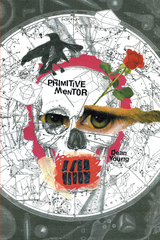

Winner of the 1998 Misha Djordjevic Award for the best book on Serbian culture in English.
Editors Gorup and Obradovic have collected stories from thirty-five outstanding writers in this first English anthology of Serbian fiction in thirty years. The anthology, representing a great variety of literary styles and themes, includes works by established writers with international reputations, as well as promising new writers spanning the generation born between 1930 and 1960. These stories may lead to a greater understanding of the current events in the former Yugoslavia.
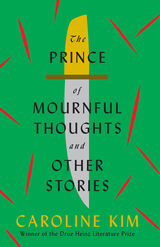
Finalist, 2021 Northern California Book Award
Longlist, 2021 PEN/Robert Bingham Prize
Longlist, 2020 The Story Prize
Exploring what it means to be human through the Korean diaspora, Caroline Kim’s stories feature many voices. From a teenage girl in 1980’s America, to a boy growing up in the middle of the Korean War, to an immigrant father struggling to be closer to his adult daughter, or to a suburban housewife whose equilibrium depends upon a therapy robot, each character must face their less-than-ideal circumstances and find a way to overcome them without losing themselves. Language often acts as a barrier as characters try, fail, and momentarily succeed in connecting with each other. With humor, insight, and curiosity, Kim’s wide-ranging stories explore themes of culture, communication, travel, and family. Ultimately, what unites these characters across time and distance is their longing for human connection and a search for the place—or people—that will feel like home.

Taylor explores aspects of himself that have affected his work. He delves into the creation of Aureole and From Sea to Shining Sea, from their initial inception to the ways in which specific dancers influenced the choreography, including such notables as Pina Bausch, Laura Dean, David Parsons, Twyla Tharp, Dan Wagoner, Senta Driver—all of whom went on to form their own companies—and others—Bettie de Jong, Nicholas Gunn, and Carolyn Adams—who remained as much a part of the Taylor style as the choreography itself. Taylor writes with sincerity, wit, and charm of his associations with Martha Graham, Merce Cunningham, Jerome Robbins, Anthony Tudor, George Balanchine, and many others.

Averch describes and analyzes common strategies for solving problems in public policy. The strategies discussed include the use of markets, bureaus, regulation, planning and budgeting, benefit-cost, systems analysis, and evaluation. He examines the historical development of each strategy; describes how each strategy would ideally work; explains the necessary or sufficient conditions that permit each strategy to work; lists the potential failures of each strategy; and provides a judgment or appraisal of each strategy.


Process Philosophy surveys the basic issues and controversies surrounding the philosophical approach known as “process philosophy.” Process philosophy views temporality, activity, and change as the cardinal factors for our understanding of the real—process has priority over product, both ontologically and epistemically. Rescher examines the movement’s historical origins, reflecting a major line of thought in the work of such philosophers as Heracleitus, Leibniz, Bergson, Peirce, William James, and especially A. N. Whitehead.

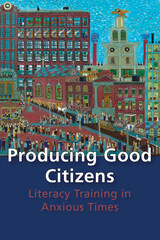
Early on, educators bore the brunt of literacy training, while also being charged with producing the right kind of citizens by imparting civic responsibility and a moral code for the workplace and society. Literacy quickly became the credential to gain legal, economic, and cultural status. In her study, Wan defines three distinct pedagogical spaces for literacy training during the 1910s and 1920s: Americanization and citizenship programs sponsored by the federal government, union-sponsored programs, and first year university writing programs. Wan also demonstrates how each literacy program had its own motivation: the federal government desired productive citizens, unions needed educated members to fight for labor reform, and university educators looked to aid social mobility.
Citing numerous literacy theorists, Wan analyzes the correlation of reading and writing skills to larger currents within American society. She shows how early literacy training coincided with the demand for laborers during the rise of mass manufacturing, while also providing an avenue to economic opportunity for immigrants. This fostered a rhetorical link between citizenship, productivity, and patriotism. Wan supplements her analysis with an examination of citizen training books, labor newspapers, factory manuals, policy documents, public deliberations on citizenship and literacy, and other materials from the period to reveal the goal and rationale behind each program.
Wan relates the enduring bond of literacy and citizenship to current times, by demonstrating the use of literacy to mitigate economic inequality, and its lasting value to a productivity-based society. Today, as in the past, educators continue to serve as an integral part of the literacy training and citizen-making process.


This richly illustrated volume, the first comprehensive study of Scheibler, includes 125 historic and contemporary photographs and drawings, a catalogue raisonné of all of his known projects—including many not recorded in any other published source—a list of books in his library, and a selected bibliography.
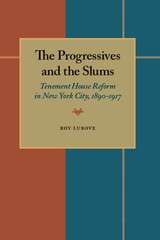


Contains fourteen essays that examine, through a public policy focus, the 1978 civil service reform and its aftermath. The essays view policy design, implementation, and evaluation, as well as the overall politics of administration and institutional change. An indispensible tool for students of public administration, bureaucratic politics, and personnel policy.
Contributors: Carolyn Ban; John Halligan; Kirke Harper; Mark Huddleston; J. Edward Kellough; Larry M. Lane; Chester A. Newland; James L. Perry; Beryl A. Radin; Robert Vaughn; and the editors.
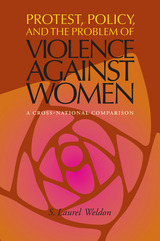
Violence against women is one of the most insidious social ills facing the world today. Yet governmental response is inconsistent, ranging from dismissal to aggressive implementation of policies and programs to combat the problem. In her comparative study of thirty-six democratic governments, Laurel Weldon examines the root causes and consequences of the differences in public policy from Northern Europe to Latin America.
She reveals that factors that often influence the development of social policies do not determine policies on violence against women. Neither economic level, religion, region, nor the number of women in government determine governmental responsiveness to this problem. Weldon demonstrates, for example, that Nordic governments take no more action to combat violence against women than Latin American governments, even though the Swedish welfare state is often considered a leader in social policy, particularly with regard to women’s issues.
Instead, the presence of independently organized, active women’s movements plays a greater role in placing violence against women on the public agenda. The breadth and scope of governmental response is greatly enhanced by the presence of an office dedicated to promoting women’s status.
Weldon closes with practical lessons and insights to improve government action on violence against women and other important issues of social justice and democracy.
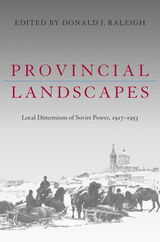
The closed nature of the Soviet Union, combined with the West’s intellectual paradigm of Communist totalitarianism prior to the 1970s, have led to a one-dimensional view of Soviet history, both in Russia and the West. The opening of former Soviet archives allows historians to explore a broad array of critical issues at the local level. Provincial Landscapes is the first publication to begin filling this enormous gap in scholarship on the Soviet Union, pointing the way to additional work that will certainly force major reevaluations of the nation’s history.
Focusing on the years between the Revolution and Stalin’s death, the contributors to this volume address a variety of topics, including how political events and social engineering played themselves out at the local level; the construction of Bolshevik identities, including class, gender, ethnicity, and place; the Soviet cultural project; and the hybridization of Soviet cultural forms. In showing how the local is related to the larger society, the essays decenter standard narratives of Soviet history, enrich the understanding of major events and turning points in that history, and provide a context for the highly visible socio-political and cultural role individual Russian provinces began to play after the breakup of the Soviet Union.

A stimilating description and interpretation of the recurrence of the Christ archetype in the modern novel. Moseley discusses novelists from Conrad and Turgenev to Camus and Hemingway.

Psychic Investigators examines British anthropology’s engagement with the modern spiritualist movement during the late Victorian era. Efram Sera-Shriar argues that debates over the existence of ghosts and psychical powers were at the center of anthropological discussions on human beliefs. He focuses on the importance of establishing credible witnesses of spirit and psychic phenomena in the writings of anthropologists such as Alfred Russel Wallace, Edward Burnett Tylor, Andrew Lang, and Edward Clodd. The book draws on major themes, such as the historical relationship between science and religion, the history of scientific observation, and the emergence of the subfield of anthropology of religion in the second half of the nineteenth century. For secularists such as Tylor and Clodd, spiritualism posed a major obstacle in establishing the legitimacy of the theory of animism: a core theoretical principle of anthropology founded in the belief of “primitive cultures” that spirits animated the world, and that this belief represented the foundation of all religious paradigms. What becomes clear through this nuanced examination of Victorian anthropology is that arguments involving spirits or psychic forces usually revolved around issues of evidence, or lack of it, rather than faith or beliefs or disbeliefs.
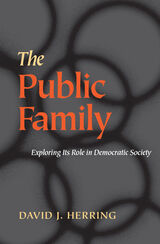
Those concerned with investigating the political functions of the family far too often identify only one: the production of “good democratic citizens.” As a result, public discussion of family law and policy has been confined to a narrow continuum that ignores the family's other, often subversive, political functions.
In The Public Family David Herring's goal is to create a new rhetoric that moves beyond the stalemate that often results from the war between advocates of parental rights and those of children's rights. This “rhetoric of associational respect” allows him to constructively address the role of rights and the limits of individualism in political and legal theory.
While acknowledging the family's importance in facilitating state functioning and power in a large, pluralistic democracy (the aforementioned production of good citizens), Herring fully explores the ways in which the family produces diversity and promotes tolerance. Unlike other works on the subject, which view the differences between individuals as constituting the central challenge for American society, Herring focuses on the importance of such differences. In doing so, he enriches and enlivens the often divisive public discussion of family law and policy.
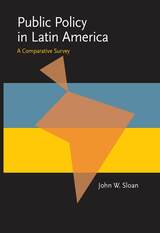
The study of Latin America has long been an ideological battleground. Scholars disagree on every major issue: the impact of the U.S. influence in the region, the political orientation of the middle class, the role of the military, the rate of socioeconomic change, and the viability of reform.
Public Policy in Latin America is a masterful synthesis of scholarship on the region. Sloan studies political phenomena not by making superficial comparisons between leaders, parties or styles, but by examining what governments do-the creation of public policy through political process. The decisions to stress accumulation versus distribution of economic goods, the role of the bureaucracy, and the quality of political participation tell more about a nation than what party or persons are in power.

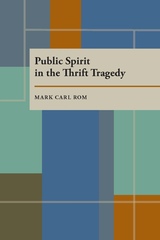
Winner of the Harold Lasswell Award of the American Political Science Association
The FSFIC failed spectacularly during the 1980s, costing taxpayers an estimated $200 billion. In this award-winning analysis, Rom examines the political causes of this “thrift tragedy.” He directly confronts-and rejects-the dominant scholarly “public choice” view that public officials were motivated mainly be self-interest. Instead, Rom argues that politicians and bureaucrats generally acted in the “public spirit” by attempting to obtain the common interest as they saw it. Using new evidence and innovative methods, Rom demonstrates that FSLIC's failure unfolded because of commitments that officials had made in the past and their uncertainties about how to fulfill these obligations in the future.

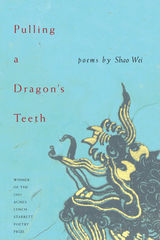
Shuttling between her childhood in a small mountain city on the shores of the Yangtze River (soon to be flooded by the Three Gorges Dam Project) and adulthood in Manhattan, Shao Weicaptures the pains and joys of tradition and displacement familiar to any immigrant. Blending fairy tales, New York images, family stories, and the universal rites of passage associated with growing up, she paints a vibrant canvas of passion and imagination.


Given the tensions and demands of medicine, highly successful physicians and surgeons rarely achieve equal success as prose writers. It is truly extraordinary that a major, international pioneer in the controversial field of transplant surgery should have written a spellbinding, and heart-wrenching, autobiography.
Thomas Starzl grew up in LeMars, Iowa, the son of a newspaper publisher and a nurse. His father also wrote science fiction and was acquainted with the writer Ray Bradbury. Starzl left the family business to enter Northwestern University Medical School where he earned both and M.D. and a PhD. While he was a student, and later during his surgical internship at the Johns Hopkins Hospital, he began the series of animal experiments that led eventually to the world’s first transplantation of the human liver in 1963.
Throughout his career, first at the University of Colorado and then at the University of Pittsburgh, he has aroused both worldwide admiration and controversy. His technical innovations and medical genius have revolutionized the field, but Starzl has not hesitated to address the moral and ethical issues raised by transplantation. In this book he clearly states his position on many hotly debated issues including brain death, randomized trials for experimental drugs, the costs of transplant operations, and the system for selecting organ recipients from among scores of desperately ill patients.
There are many heroes in the story of transplantation, and many “puzzle people,” the patients who, as one journalist suggested, might one day be made entirely of various transplanted parts. They are old and young, obscure and world famous. Some have been taken into the hearts of America, like Stormie Jones, the brave and beautiful child from Texas. Every patient who receives someone else’s organ - and Starzl remembers each one - is a puzzle. “It was not just the acquisition of a new part,” he writes. “The rest of the body had to change in many ways before the gift could be accepted. It was necessary for the mind to see the world in a different way.” The surgeons and physicians who pioneered transplantation were also changed: they too became puzzle people. “Some were corroded or destroyed by the experience, some were sublimated, and none remained the same.”
READERS
Browse our collection.
PUBLISHERS
See BiblioVault's publisher services.
STUDENT SERVICES
Files for college accessibility offices.
UChicago Accessibility Resources
home | accessibility | search | about | contact us
BiblioVault ® 2001 - 2024
The University of Chicago Press









